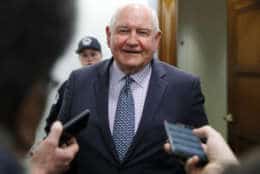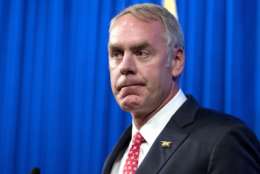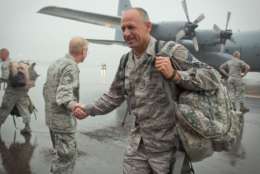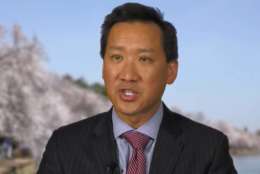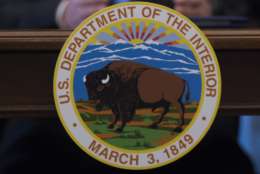Hiring/Retention
-
Performance management is a serious focus for all agencies during the next two years.
April 13, 2018 -
The President's Budget for 2019 proposes a nearly $6 billion funding cut to the Agriculture Department, which is undergoing an agencywide reorganization and IT modernization initiative.
April 12, 2018 -
The policy released last month effectively bars transgender people from joining the military and puts transgender troops currently serving in jeopardy of losing their jobs.
April 12, 2018 -
Some members of the National Guard said certification of their promotions has taken up to six months.
April 12, 2018 -
Performance feedback, training and employee well-being are under review by managers, according to the deputy associate director for the Senior Executive Service and Performance Management.
April 12, 2018 -
In today's Federal Newscast, after media reports said the Interior Secretary made dismissive comments about workforce diversity, 28 members of Congress send a letter to Ryan Zinke asking him to rethink his comments.
April 12, 2018 -
Mid-career women in the Coast Guard are leaving at a much higher rate than other demographics.
April 11, 2018 -
The Air Force is giving airmen 16 more hours of free childcare and using a new web tool to connect them with housing.
April 09, 2018 -
The Air Force Reserve is keeping airmen who requested discharges or retirement until Sept. 30.
April 09, 2018 -
After getting the go-ahead from the State Department to proceed on their own hiring strategy, the U.S. Agency for International Development released details Thursday on its proposal to reorganize the agency.
April 06, 2018 -
The Defense Department and some lawmakers want to make the program, which lets troops take a sabbatical to go back to school or care for a sick loved one, a permanent fixture in the military.
April 03, 2018 -
As the Pentagon puts more pressure on its all-volunteer force, it's finding a disconnect between the people it wants and the people it has in its ranks.
April 03, 2018 -
The Health and Human Services Department has 37 specific plans under its broad initiative to maximize talent and create a 21st century workforce.
April 03, 2018 -
Jeff Pon, the OPM director, said it's time to stop trying to fix the civil service in an ad-hoc manner.
April 02, 2018 -
The CIO Council’s event highlighted the role of women and the impact they are making in the federal IT, cybersecurity.
April 02, 2018


